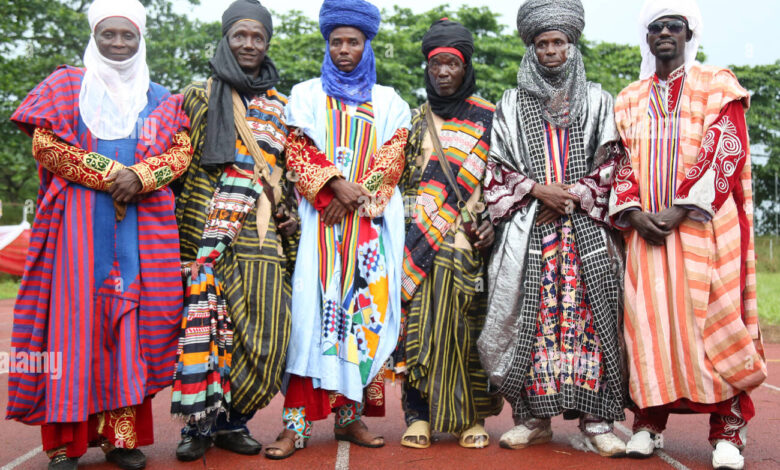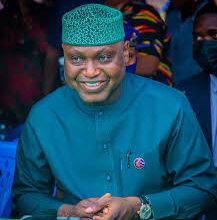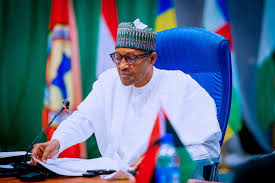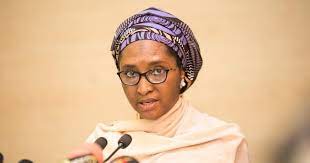
By Umar Ardo, Ph.D
In times of uncertainty, fear, or social tension, there’s always the temptation to seek scapegoats; to find a group to blame for our national problems. Throughout history, this dangerous impulse has led to the marginalization of minorities, the deepening of social divisions and, tragically, in some cases, to violence and conflict.
- In Nigeria today, that temptation has taken the form of ethnic profiling, and more specifically, the widespread vilification of the Fulani people, both within and outside the country. This is a dangerous narrative that must be urgently and collectively rejected by all right-thinking Nigerians, regardless of ethnic or regional affiliation.
- In trying to understand the context of this issue, no one can deny the reality that some Fulani herders and armed groups, driven by a mix of environmental pressures, economic exclusion, demographic dislocation, state failure and regional instability, particularly across the Sahel, have been involved in violent clashes, banditry and other security threats in recent years. These acts are tragic, condemnable and must be addressed by the Nigerian state with firmness, fairness and strategic depth.
- However, the problem arises when this handful of criminal actors are used by certain venal elements in society as the basis to generalize and demonize an entire ethnic group of over 30 million people, most of whom are peaceful, law-abiding citizens and have for centuries made immense contributions to the development and cohesion of Nigeria. This is the hypocrisy and folly of ethnic stigmatization
- This profiling of the Fulani stands in stark contradiction to the very principles of justice, morality and responsible civic conduct. Those who perpetuate this narrative, many of whom are loudest on social media and in certain regional circles, conveniently forget that criminal behavior is not the preserve of any single ethnic group. No part of Nigeria – not the North, South, East, or West – is free from criminality. Every ethnic group has its share of individuals who engage in violence and criminal acts. For example, most of those who are engaged in drug trafficking, fake drugs, cyber fraud, armed robbery, ritual killings, cultism, prostitution, etc., at home and abroad, are of Igbo descent.
- Yet, for the sake of peace, unity and moral responsibility, no one blames the entire Igbo ethnic group for the actions of its few members. Nor do we profile all Yoruba people for ritual attacks, cultist killings, trade in human organs or political arson and violence, most of which are committed by their ethnic group. Also, more than 80% of adherents of the Boko Haram terrorist movement are Kanuris, but the entire ethnic group has not been profiled as Boko Haramists. Nobody is doing that because it is grossly unfair, illogical and provocative to single out an entire ethnic group for collective condemnation over the actions of a criminal minority amongst them.
- Yet, that is what is being done to the Fulani people, especially since the coming of President Goodluck Jonathan to power. Those engaged in this anti-Fulani narrative must ask themselves: What good does it serve to promote division, fear and hatred in a country already stretched thin by insecurity, poverty and political dysfunction?
- Ethnic profiling is not a harmless opinion. It is a social toxin. It deepens mistrust, sows fear, weakens national unity and creates an environment where injustice becomes normal. When one group is stigmatized, others may follow. It sets a dangerous precedent – and as history of Nigeria has shown, it can spiral into discrimination, ethnic violence or even civil war.
- Those promoting these narratives forget that ethnic hatred has no end point. Once it begins, it consumes everything in its path – today it’s the Fulani, tomorrow it could be the Igbos, Yorubas, Ijaws, Tivs, or Kanuris.
- The truth about the Fulani is that they are not a monolith. Like every other ethnic group in Nigeria, they are diverse in culture, character, and occupation; from herders to scholars, technocrats to traders, politicians to poets, religious leaders to reformers. They have produced some of the country’s most brilliant administrators, intellectuals, civil servants, soldiers, businessmen and philanthropists. To reduce such a rich and diverse people to one negative stereotype is not only unfair – it is ignorant.
- We must be mature and civil in our conduct towards one another. It is time for Nigerians, especially the educated elite and civic leaders, to reject simplistic and hateful narratives. We must rise above emotional and tribal temptations and focus on addressing crime and governance challenges as national problems, not ethnic ones.
- Let us be guided by these truths:
• Criminality is an individual act, not an ethnic identity;
• Ethnic stereotyping is a sign of moral and intellectual failure; and
• Unity is not uniformity – it is the strength found in diversity, bound by justice. - To those engaging in ethnic profiling, especially against the Fulani, here is some honest advice:
i. Stop spreading hate. It is morally wrong and socially destructive;
ii. Challenge individuals, not ethnicities. If someone commits a crime, name and punish the person – not their tribe;
iii. Promote dialogue and understanding. Host town halls, publish balanced perspectives and build bridges;
iv. Educate your community. Remind your people that profiling others today may lead to their own victimization tomorrow; and
v. Demand justice and reform – not revenge or scapegoating.
This is the only right way forward for our country. There is no other. - Let me end this piece by pointing out that currently Nigeria is at a crossroads. Our unity and survival depend on our ability to treat one another with fairness, respect and justice – not based on ethnicity, but on our shared humanity. It is time to reject the politics of profiling and embrace a new national ethic: one that sees the Nigerian, not the tribe; the citizen, not the scapegoat. The Fulani deserve dignity. So do the Igbos, Yorubas, Tivs, Ijaws and all others. Let us not fall into the trap of collective hatred. Let us rise, as one people, with one destiny, building a nation where no Nigerian is oppressed or vilified because of where they come from.
- I hope this article will be seen as a carefully crafted and balanced piece that addressed a serious national concern, that exposed the dangers of ethnic profiling and that called for a higher national standard of unity, responsibility and justice.





